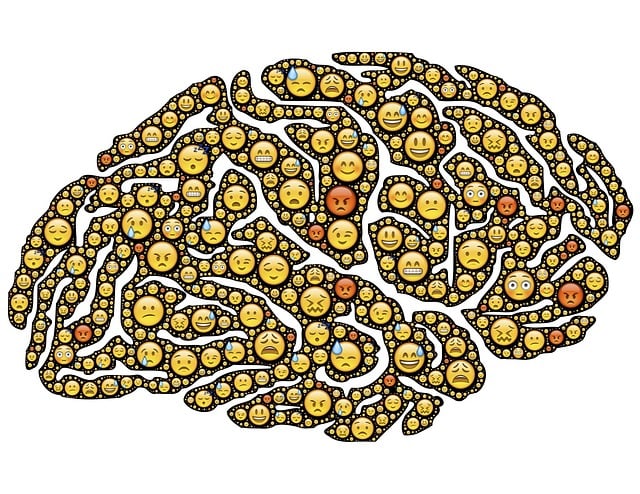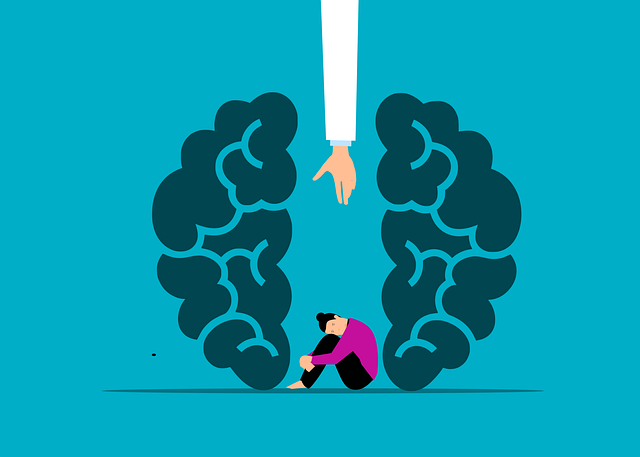Mental illness stigma significantly impedes recovery, creating barriers to essential services like Longmont Alcohol Abuse Therapy. This internalized shame and isolation prevent many from seeking help, impacting not just individuals but communities and healthcare systems lacking adequate resources due to stigmatization. Reducing stigma requires a collaborative approach focusing on education and open dialogue, using podcasts, personal narratives, and structured programs to humanize experiences and challenge societal perceptions. Education campaigns in schools, workplaces, and community centers dispel myths, while inclusive language and open discussions normalize conversations about mental well-being. Involving individuals with lived experiences offers powerful testimonials, aiming to reduce stigma around Longmont Alcohol Abuse Therapy and other mental health services. Building supportive systems through specialized therapies, public awareness campaigns, and healthcare provider training further reduces stigma, empowering clients and ensuring sensitive care for diverse needs.
Mental illness stigma, a pervasive barrier to recovery, continues to impact millions. This article explores targeted efforts to reduce this societal burden, focusing on understanding the profound effects of mental health stigma. We delve into evidence-based strategies, including education and awareness campaigns, that challenge deeply ingrained social perceptions. Additionally, we highlight the crucial role of support systems in fostering understanding and acceptance, offering hope for a more compassionate future where individuals like those seeking Longmont Alcohol Abuse Therapy are embraced rather than ostracized.
- Understanding the Impact of Stigma on Mental Health
- Strategies for Challenging Social Perceptions
- The Role of Education and Awareness Campaigns
- Effective Support Systems for Overcoming Stigma
Understanding the Impact of Stigma on Mental Health

Stigma surrounding mental illness can have profound effects on an individual’s well-being and their journey towards recovery. When a person struggles with mental health issues, the societal labels and negative perceptions often attached to these conditions create barriers to seeking help. Many individuals experiencing anxiety, depression, or psychosis may internalize these stigmas, leading to feelings of shame and isolation. This can impede their progress in finding appropriate treatment, such as Longmont Alcohol Abuse Therapy, and hinder access to essential support systems.
The impact of stigma extends beyond the individual, affecting communities and healthcare systems as a whole. It contributes to the lack of resources allocated towards mental health services, including burnout prevention programs and cultural competency training for healthcare providers. By reducing the associated stigma, society can foster an environment where people feel empowered to initiate emotional healing processes and pursue specialized care, ultimately improving overall public health.
Strategies for Challenging Social Perceptions

Reducing the stigma around mental illness requires a collective effort to challenge and reshape social perceptions. One powerful strategy is to educate communities about the realities of mental health struggles, dispelling myths and misconceptions through open dialogues. This can be achieved through various means, such as hosting Mental Wellness Podcast Series Production that highlight personal narratives, expert insights, and recovery stories. Such platforms offer a safe space for discussions, fostering understanding and empathy from listeners across different backgrounds.
Additionally, structured programs like Social Skills Training and Inner Strength Development initiatives can play a pivotal role in changing societal attitudes. These interventions equip individuals with the tools to navigate social interactions confidently, challenging the notion that mental illness impairs one’s ability to form connections. By promoting these activities, communities can create an environment where support is offered without judgment, ultimately leading to greater acceptance and improved access to care, including services like Longmont Alcohol Abuse Therapy.
The Role of Education and Awareness Campaigns

Education and awareness campaigns play a pivotal role in mental illness stigma reduction efforts. By providing accurate information about various mental health conditions, these initiatives help dispel myths and misconceptions prevalent in society. Schools, workplaces, and community centers can host workshops, seminars, and interactive sessions to engage folks in open conversations about mental well-being. Incorporating topics like recognizing signs of distress, the importance of self-care, and available support systems can foster empathy and reduce fear or judgment associated with seeking Longmont Alcohol Abuse Therapy or other mental health services.
Effective communication strategies are at the core of these campaigns. Using inclusive language that respects individuals’ experiences and avoids stigmatizing terms can create a safe space for dialogue. Encouraging open discussions about mental illness in various settings, from social media platforms to local gatherings, helps normalize conversations around mental well-being. Moreover, involving people with lived experiences in these campaigns can offer powerful testimonials, challenging stereotypes and promoting understanding of the diverse spectrum of mental health conditions, including burnout, which is a growing concern among healthcare providers as part of burnout prevention strategies.
Effective Support Systems for Overcoming Stigma

Building supportive systems is a pivotal strategy in overcoming mental illness stigma. Longmont Alcohol Abuse Therapy centers play a crucial role here by offering specialized programs tailored to address various forms of mental health concerns, including substance abuse. These therapies provide individuals with safe spaces to seek help, fostering an environment free from judgment and promoting understanding. The therapeutic setting encourages open conversations, empowers clients with coping mechanisms, and helps dispel myths associated with mental illness.
Effective support also stems from increased public awareness campaigns that educate communities about mental health issues. Initiatives focused on reducing stress through various reduction methods can significantly impact stigma. Additionally, Healthcare Provider Cultural Competency Training is vital to ensure professionals are equipped to handle diverse patient needs sensitively and effectively, further minimizing the barriers caused by cultural misunderstandings or insensitive practices.
Mental illness stigma, a significant barrier to seeking help, can be reduced through multifaceted efforts. By challenging societal perceptions, educating communities, and fostering supportive environments, we can create a more inclusive society. Longmont Alcohol Abuse Therapy serves as a testament to the power of specialized support systems in overcoming stigma. As we continue to navigate this complex issue, remember that every step towards understanding and acceptance brings us closer to improving mental health outcomes for all.











